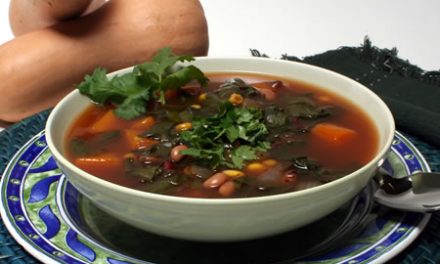Nutrition researchers continue to discover how antioxidants protect our health. These substances stop, and sometimes even repair, damage to cells that can occur from highly reactive molecules. Called free radicals, these molecules are generated naturally by many life processes (like breathing) and daily exposures (like sunlight). By preventing this damage, scientists say antioxidants can help prevent cancer, heart disease and other health problems, such as age-related eye diseases, for example, macular degeneration.
But these discoveries should not lead us to focus only on famous antioxidants, like vitamins C and E. A new study supports the advice of health organizations, including the American Institute for Cancer Research, that vegetables and fruits are preferable to supplements for harnessing antioxidant power.
In this recent study, participants ate the same basic diet that excluded all vegetables and fruits. One group, however, was also given about six servings of fruits and vegetables a day. A second group received a vitamin and mineral supplement in place of the vegetables and fruits. Before and after the 25-day program, researchers tested the participants for their levels of oxidation damage, as well as antioxidant nutrients and defense systems.
This study indicates that vegetables and fruits provide more antioxidant protection than supplements alone. The group that ate vegetables and fruits showed significantly less oxidation damage than the others. The group that took supplements showed a reduction in oxidation damage, but not as much. Levels of an enzyme system vital for antioxidant defense increased only in the group eating fruits and vegetables. The researchers concluded that vegetables and fruits offer sources of antioxidant protection not available from vitamin and mineral supplements alone.
In an earlier study, participants who had been eating an average of five servings of fruits and vegetables per day over the previous year were put on a diet that maintained their starting weight, but increased fruits and vegetables to a total of ten servings a day. Their antioxidant intake and antioxidant capacity measured by blood tests increased substantially. The researchers believe the increase in antioxidant power probably came from more antioxidants, like beta-carotene, lycopene and vitamin C, as well as more flavonoids and other phytochemicals that act like antioxidants. They also observed that the body's antioxidant capacity seemed to level off at about ten to twelve fruit and vegetable servings a day.
While research shows that vegetables and fruits are vital sources of antioxidants, the plant-based diet recommended by the American Institute for Cancer Research is the most complete approach to healthy eating. Whole grains, beans and nuts also contain antioxidant vitamins and phytochemicals. Spices and herbs add even more.
It cannot be stressed enough that antioxidants are only part of the health benefits of a plant-based diet. Nonantioxidant properties of phytochemicals are another important part. For example, test tube studies at Cornell University ranked the ability of different vegetables to control the growth of one type of cancer cell. The results differed from the vegetables' antioxidant content, probably reflecting the additional anti-cancer effects of phytochemicals.
To obtain phytochemicals � hundreds of which are known to exist � you need to eat a wide variety of vegetables, fruits, whole grains and beans. This is a major reason why supplements can't supply the benefits of a plant-based diet.
AICR









